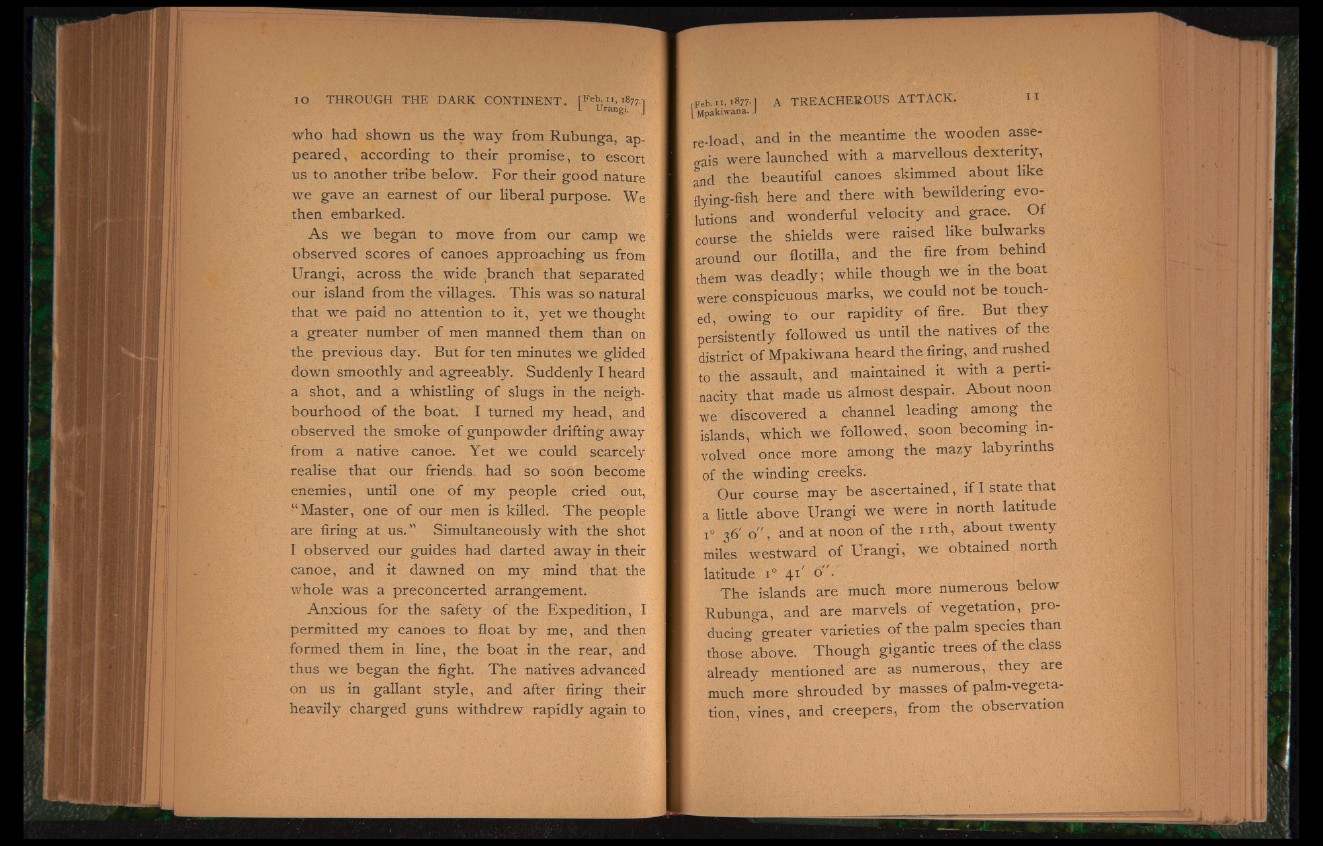
who had shown us the way from Rubunga, appeared
, according to their promise, to escort
us to another tribe below. For their good nature
we gave an earnest of our liberal purpose. We
then embarked.
As we began to move from our camp we
observed scores of canoes approaching us from
Urangi, across the wide .branch that separated
our island from the villages. This was so natural
that we paid no attention to it, yet we thought
a greater number of men manned them than on
the previous day. But for ten minutes we glided
down smoothly and agreeably. Suddenly I heard
a shot, and a whistling of slugs in the neighbourhood
of the boat. I turned my head, and
observed the smoke of gunpowder drifting away
from a native canoe. Yet we could scarcely
realise that our friends, had so soon become
enemies, until one of my people cried out,
“Master, one of our men is killed. The people
are firing at us. ” Simultaneously with the shot
I observed our guides had darted away in their
canoe, and it dawned on my mind that the
whole was a preconcerted arrangement.
Anxious for the safety of the Expedition, I
permitted my canoes to float by me, and then
formed them in line, the boat in the rear, and
thus we began the fight. The natives advanced
on us in gallant style, and after firing their
heavily charged guns withdrew rapidly again to
(Feb. 11,1877.1 A TREACHEROUS ATTACK. I I
[ Mpakiwana. J
re-load, and in the meantime the wooden assegais
were launched with a marvellous dexterity,
and the beautiful canoes skimmed about like
flying-fish here and there with bewildering evolutions
and wonderful velocity and grace. Of
course the shields were raised tike bulwarks
around our flotilla, and the fire from behind
them was deadly; while though we in the boat
were conspicuous marks, we could not be touched,
owing to our rapidity of fire. But they
persistently followed us until the natives of the
district of Mpakiwana heard the firing, and rushed
to the assault, and maintained it with a pertinacity
that made us almost despair. About noon
we discovered a channel leading among the
islands, which we followed, soon becoming involved
once more among the mazy labyrinths
of the winding creeks.
Our course may be ascertained, if I state that
a tittle above Urangi we were in north latitude
i° .36' o", and at noon of the n th , about twenty
miles westward of Urangi, we obtained north
latitude i ° 4 1 ' o ' .
The islands are much more numerous below
Rubunga, and are marvels of vegetation, producing
greater varieties of the palm species than
those above. Though gigantic trees of the class
already mentioned are as numerous, they are
much more shrouded by masses of palm-vegeta-
tion, vines, and creepers, from the observation